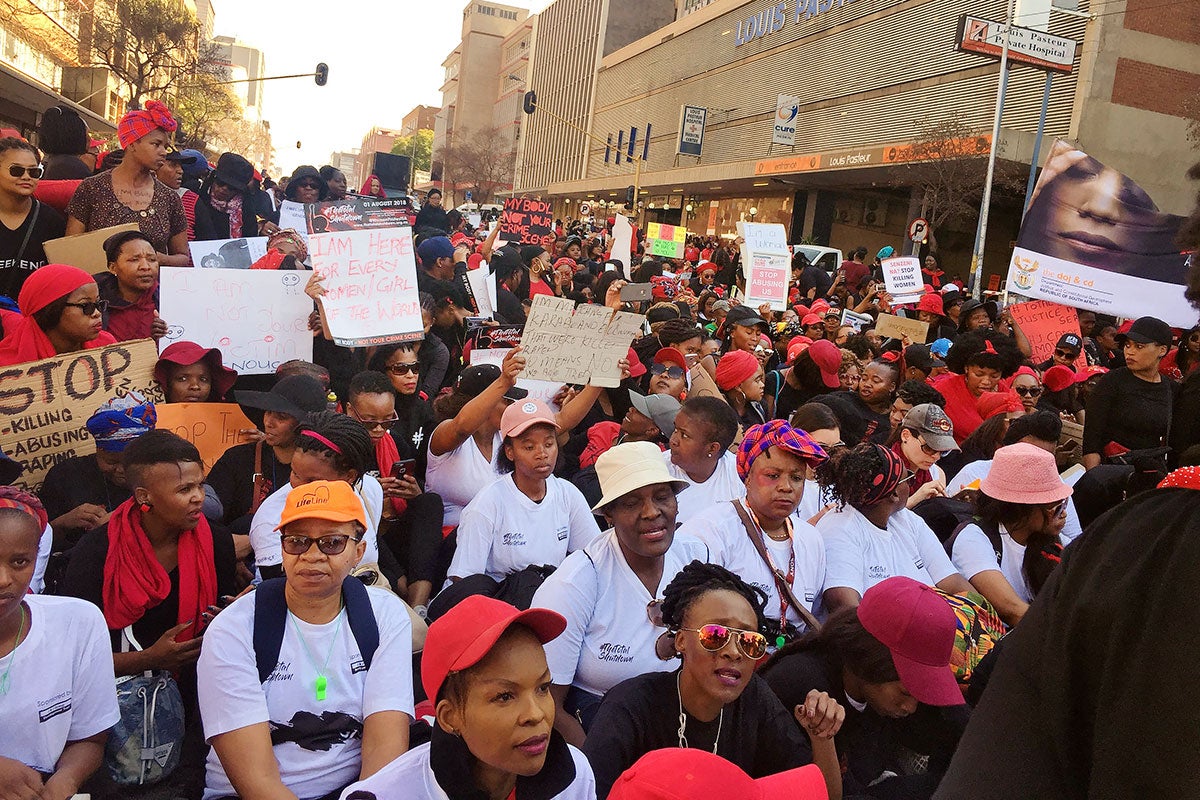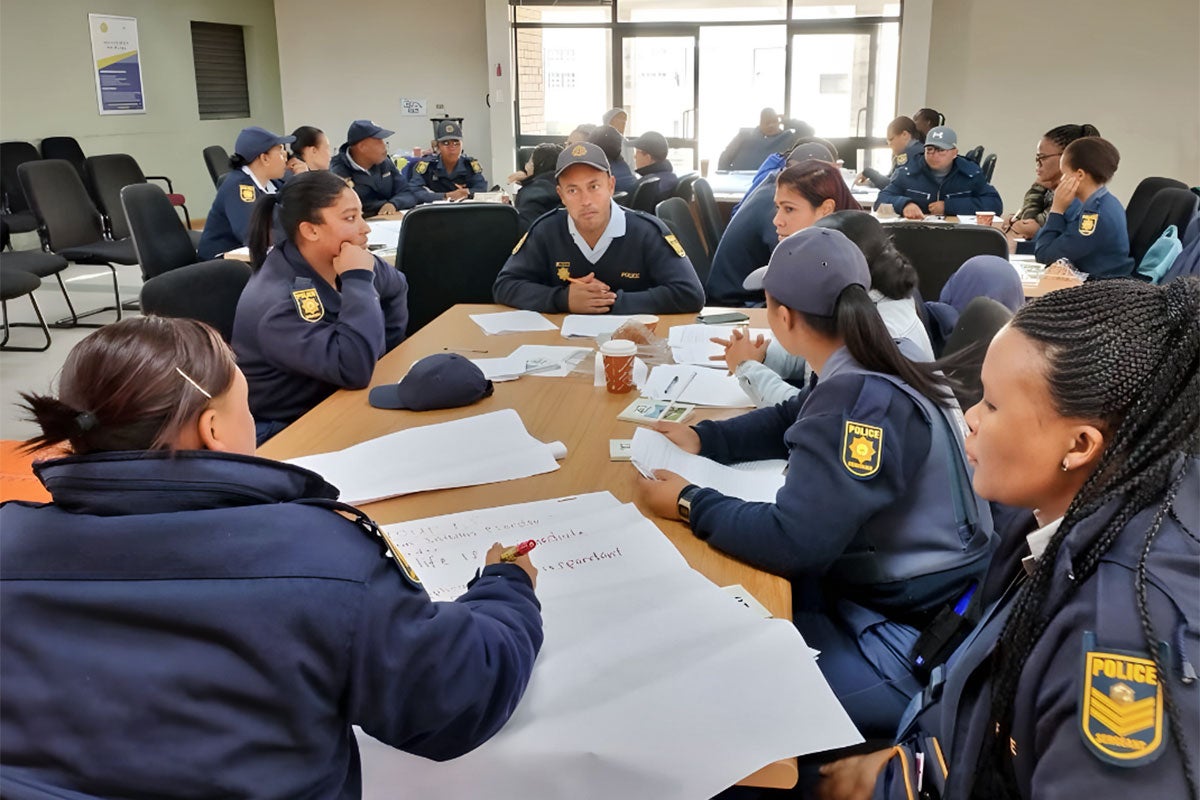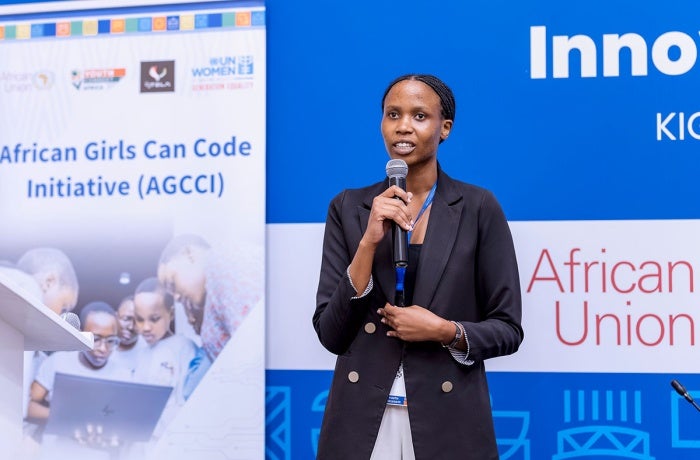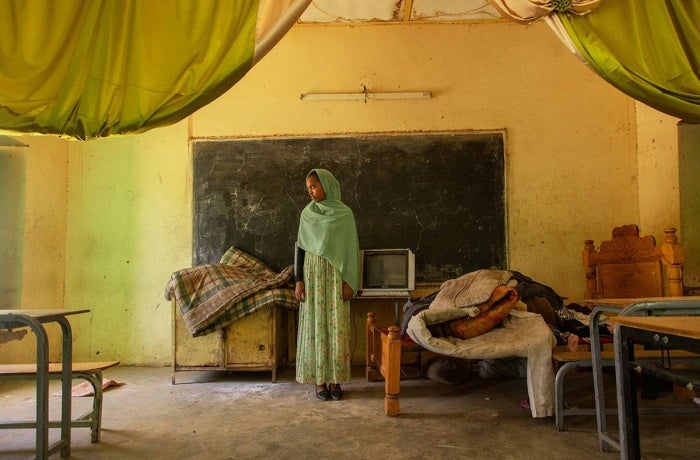Tackling femicide in South Africa through laws, policies, and better policing
Globally, every 10 minutes, a woman was intentionally killed by her partner or family in 2023. In South Africa, with 5.5 women killed by intimate partners per 100,000 women between 2020 and 2021, femicide rates have remained high, according to the South African Medical Research Council (SAMRC).

Often hidden behind these numbers are the personal experiences that affect families and entire communities who are left behind.
“We have young people witnessing intimate partner violence in their families,” shares Anna Maswikeni, a social worker working with the Young Women for Life Movement, supporting survivors of gender-based violence in Mpumalanga, in the northern part of South Africa. “We had a young boy who witnessed his mother being killed by her boyfriend. He saved the sister… if it wasn’t for him, maybe all of them were going to be killed in that household. So, he has [a lot of] anger towards the mother’s boyfriend.”
Witnessing such violence leaves a devastating impact on children, she further explains. They may learn to normalize violence, think that violence is an accepted way to solve disagreements, lose their self-esteem, or adopt unhealthy coping mechanisms. Gender-based violence traps families in inter-generational trauma.
Unpacking femicide in South Africa
Femicide, or killing of women and girls because of their gender, is the most extreme and brutal manifestation of violence. It is driven by discrimination against women and girls, unequal power relations, gender stereotypes, or harmful social norms, which can escalate to a deadly outcome. The fourth national femicide study in South Africa revealed that three women were killed every day by an intimate partner from 2020 - 2021.
Nwabisa Shai, a Specialist Researcher in the Gender and Health Research Unit of the SAMRC, explains that femicide is often the result of a pattern of abuse: “We know the drivers [of femicide]. It is mostly when the violence that women experience is severe. The warning signs can include strangulation, injuries requiring hospitalization, or the compounding of different types of abuse - emotional, physical, and sexual.”
A culture of silence allows gender-based violence to escalate
Across the globe, too many victims of femicides go uncounted, because their deaths are not accurately documented as femicides, and gender-based violence continues to be under-reported. South Africa is no exception to this.
“We still have a lot of unreported cases of abuse against our girls and women,” says Maswikeni, describing how families would discourage survivors from speaking out and try to “settle” the issue through family meetings or arrangements of monetary compensation.
“This culture of silence perpetuates vicious cycles [of violence] across generations. Often, children who witness violence at home either internalize the trauma or replicate the behaviour,” explains Maswikeni.
Although many interventions and policy efforts are underway, there are significant gaps in the justice system response. The national femicide study in South Africa also revealed that in 44 per cent of femicide cases, the police failed to identify a perpetrator.

A national plan of action to stem the tide of gender-based violence
Following the #TotalShutdown March in August 2018 – the largest coordinated protest by women in South Africa against gender-based violence – that brought Pretoria, the economic hub of the country to a standstill, the South African Government developed the National Strategic Plan on ending gender-based violence. Launched in 2020, the Plan has led to some legal reforms and improved support for survivors of gender-based violence through one-stop care centres and the establishment of a national fund to address gender-based violence and femicide.
In May 2024, the South African President signed a bill to establish the National Council on Gender-based Violence and Femicide, which will oversee the full implementation of the National Strategic Plan and allocate the funds to policies and programmes to end femicide and gender-based violence.
“As UN Women, we advocated for the development of the National Strategic Plan and the National Council, because we know how important leadership, financial, and human resources are, for addressing this urgent matter of preventing and ending violence against women and girls in South Africa,” said Hazel Gooding, UN Women Deputy Representative of the South Africa Multi-Country Office.
Better policing, and support for women’s organizations is critical to winning the fight against gender-based violence and femicide
Experts in South Africa agree that ending violence against women and girls requires a multi-pronged approach. This includes promoting women’s financial independence and addressing food insecurity, mental health and substance abuse issues.
“If we empower young women to be economically independent, it gives them more leverage to decide to leave an abusive situation. It is sometimes due to economic pressure that women stay until it’s too late,” says Maswikeni.
Shai and Maswikeni both point to another area of action – resourcing and training police units to respond appropriately to gender-based violence cases, to end impunity and to prevent the escalation of abuse. They recommend establishing dedicated units to investigate femicide.
"The police don’t have the kinds of resources they need,” explains Shai. "We need a dedicated femicide unit for case management, so that this can be done thoroughly. Women are killed with impunity, because the police don’t have the kind of systems that could help them."
The protection order mechanisms also need to change. “Currently, the protection order process relies on the woman to find the perpetrator, and get him to sign it, which is not safe for the woman. In some of our studies, we get a sense that the protection order can be a catalyst for more violence against the woman,” added Shai.
As South Africa continues the push to end gender-based violence, advocates and researchers agree that, beyond legal reforms and better policing, it will take a significant change in how society views and values the lives of women. Funding women’s organizations, which support survivors and efforts to change harmful social norms and attitudes, is critical at this juncture.









